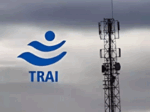The broadcasting sector is facing growing uncertainty as the Ministry of Information and Broadcasting (MIB) continues to delay action on key reform recommendations made by the Telecom Regulatory Authority of India (TRAI). Industry executives warn that this inaction could further slow down innovation and growth in a sector already dealing with changing consumer habits and rapid technological shifts.
Since 2020, TRAI has issued 17 detailed recommendations covering a wide range of reforms, including responses to back references from the ministry. These span from proposals to eliminate DTH licence fees by FY27, to enabling infrastructure sharing between cable operators and internet service providers to boost broadband penetration.
Despite their significance, many of these suggestions remain pending. Experts believe this is partly because the government is reviving the Broadcast Services Regulation Bill, which was shelved last year following industry backlash. This bill aims to redefine the regulatory framework for television, digital, and OTT services—potentially making existing recommendations redundant or reshaped.
“Most recommendations were made on ministry referrals. If they’re not going to act on them, it questions the very purpose of these consultations,” remarked a senior executive from a major TV distribution company.
Among the reforms on hold are recommendations for updating the Cable TV Act, upgrading DD Free Dish to an addressable platform, encrypting free-to-air content, listing channels in the Electronic Programme Guide, and improving ease of doing business in broadcasting manufacturing.
TRAI also recently proposed a shift to an authorisation-based model under the Telecommunications Act, 2023—reducing red tape and costs for service providers. But the MIB’s preference, according to experts, appears to be consolidating relevant recommendations into the upcoming bill rather than implementing them individually.
“There’s a cautious approach at play,” said senior advocate Abhishek Malhotra, pointing out that TRAI’s regulatory relevance is being questioned with both the new Telecom Act and the Broadcast Bill potentially curbing its influence.
Industry veterans, including Sunil Punj, continue to push the ministry for faster policy decisions. Encrypting DD Free Dish, he says, could be a game-changer for cable operators and broadcasters alike.
Until concrete steps are taken, the fate of TRAI’s recommendations—and the future of broadcasting reform in India—remains uncertain.
